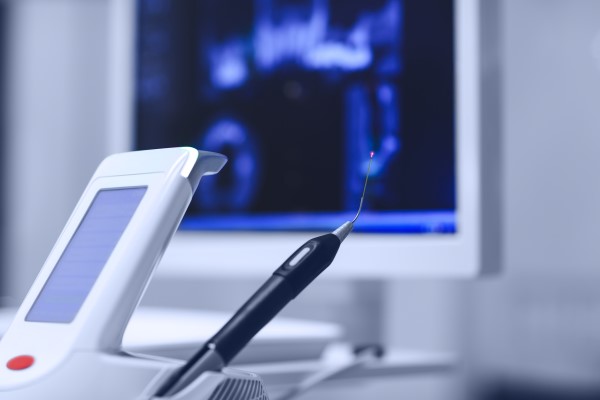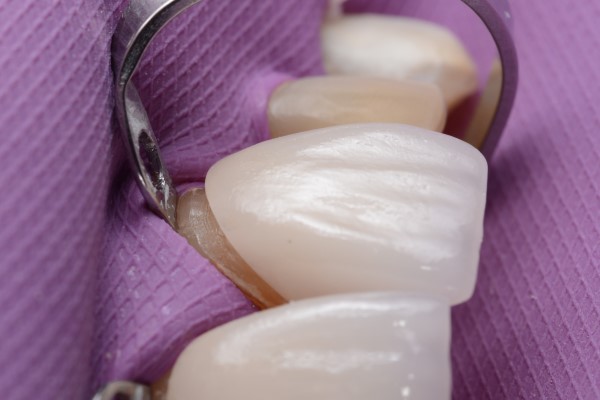How a Laser Dentist Treats Cavities

When people experience cavities, the resulting pain can interfere with eating and flare up when the cavity comes in contact with hot or cold foods. A laser dentist can assist with repairing cavities depending on their severity and in a way that reduces the pain typically associated with such a procedure. Those who want to try laser dentistry may want to first understand how the treatment works, who qualifies, and what they can expect during the appointment.
About laser dentistry
Some dental patients delay having their cavities treated because they fear the discomfort it can cause. However, a laser dentist can eliminate much of that worry by using a water-based laser to treat cavities and create spaces for fillings. The laser reduces pain caused by the existing cavity and removes debris and decay. This offers several advantages for dental patients, including:
- Little to no discomfort during treatment
- No downtime after the appointment
- No drilling or numbing agents required
This type of dentistry can also treat a few other oral issues, such as gum disease, and the process is safe for patients of almost any age.
The laser treatment process
Patients who choose a laser dentist to treat their cavities will likely undergo a consultation first to ensure the process is the right choice for them. A dentist may take X-rays of the affected area and examine the cavity before removing any debris and areas of the tooth that cannot be saved. Once cleared, the dentist uses a water laser to create an area where he or she will place the filling. The laser itself is quite precise, which makes the process more efficient than traditional drilling.
During the treatment, dentists trained to operate laser machines use their invisible rays to remove dead pulp and fragments so they can put a filling in place. One major benefit of using these lasers is their precision that allows dentists to save and repair as much of the tooth as possible and create a smaller filling.
Qualifying for laser dentistry
While laser dentistry is not yet as widespread as traditional treatments, it is gaining popularity as more dentists invest in the equipment and training required. However, patients looking for a laser dentist may want to keep a few factors in mind that could affect their treatment. Those who already have fillings are unlikely to qualify, as the lasers do not remove old filling material.
The placement of a cavity may also affect whether patients qualify for laser dentistry. If the affected area is difficult to reach, some traditional treatment may be necessary. A dentist trained to use water lasers can help patients decide what type of treatment might suit them, especially when multiple cavities require repair.
Conclusion
Laser dentistry can help take much of the anxiety and fear out of cavity treatment, especially for those who have specific fears connected to visiting the dentist and may delay seeing one until tooth loss takes place. This procedure may encourage such patients to visit their dentist more often and improve both their oral health and their smile.
Request an appointment here: https://www.houstonpersonaldentist.com or call Jeff Tollett, DDS at (713) 481-3045 for an appointment in our Houston office.
Check out what others are saying about our dental services on Yelp: Laser Dentistry in Houston, TX.
Recent Posts
Are you thinking about making an appointment with a laser dentist? This recent form of dentistry is becoming more common in both preventive and restorative care. It is helpful to learn more about what this professional can do and how visiting one can benefit your oral health and smile. In laser dentistry, the dentist can…
Has your dentist talked to you about getting veneers? This is one of a few options your dentist can consider to restore your smile. If you are not happy with the way your teeth look, you do not have to continue to feel embarrassed. Talk to your dentist about whether a veneer is the right…
Choosing dental implants is a great idea if you are looking into your tooth-replacement options because you are missing one or more of your teeth. This option is one that offers benefits that other replacement options do not, which is why so many patients are choosing implants to replace their missing teeth. Other replacement options…
Treating crooked teeth does not just improve your smile's appearance; it can also improve your dental health. Clear braces can straighten teeth, offering numerous benefits: Lower risks of tooth decay Lower risks of gum disease Decreased tooth or jaw pain Improved digestion Improved speechEven though they do not utilize traditional wires, brackets, and bands, clear…


